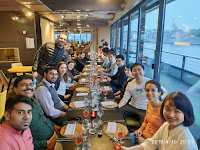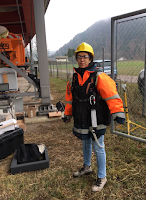MSCA projects are life-changing experience. And HERE IS WHY

Three years already after the beginning of my Ph.D. In other countries, I should be finishing and defending my work, but in Switzerland, things are different. Here the quality of research is much more appreciated. Therefore, a normal Ph.D. takes over 4 years. This month we had the last meeting of our MCSA (Marie Skłodowska-Curie actions) project INFRASTAR. So we all met in Brussels to celebrate our work and give feedback about our project. last beer with the INFRASTAR team Many conclusions were discussed, and further works were recommended. It seems that the fatigue of concrete does not have a ready to use solution, we had, therefore, the opportunity to take advantage of the synergies created by different opinions and visions. But we all agreed on one thing: Only sleep cures fatigue. And we left with this beautiful souvenir: Only sleep cures fatigue ;) Now that our MSCA project comes to an end, I would like to share with you how this project makes me a d




